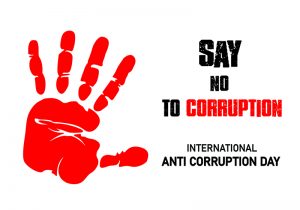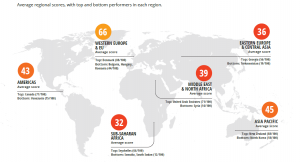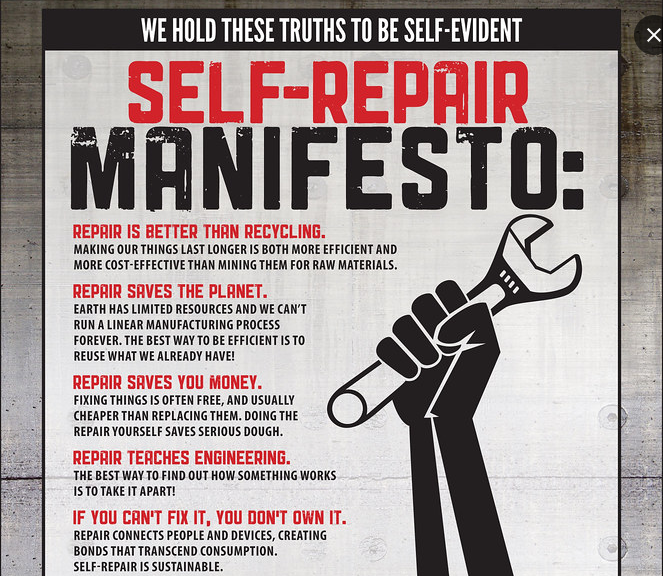


Linking Gender and Climate
12 February 2022
The State in France and the United States: So Far, So Close
16 February 2022© Céline Bansart
A recent PhD graduate of Sciences Po, Sofia Wickberg was awarded the #StopCorruption association prize for her analysis of anti-corruption policies.
She has come back to talk to us about her thesis on the convergence and translation of corruption prevention policies, based on the example of parliamentary integrity in France, Sweden and the United Kingdom.
Why did you dedicate your thesis to corruption issues?
After completing a master’s degree in International Relations and European Politics at the Institute for Political Studies in Aix-en-Provence, I wanted to get some professional experience before starting a doctoral thesis. I worked for French diplomacy, the United Nations Office on Drugs and Crime and then for Transparency International, the main NGO dedicated to fighting corruption.
These professional experiences led me to my thesis subject. I wanted to understand the effects of transnational actors (international organisations, civil society organisations, networks of experts, etc.) on the choices made by governments in terms of preventing corruption.
I chose to analyse conflict of interest regulation in parliaments. Elected officials may find themselves in situations in which their private interests interfere with their duties as elected officials, and are likely to influence the carrying out of their mandates. This question of conflicts of interest is at the heart of the problem of political corruption in Europe, yet it remains largely misunderstood.
I was lucky enough to be able to join the Centre for European Studies and Comparative Politics, where I had the opportunity to meet scholars such as Pierre Lascoumes and Philippe Bezes, whose work on white-collar crime inspired me immensely. I also found my thesis supervisor there – Colin Hay, whose research on political disaffection in Europe and work on constructivist political analysis greatly shaped my work.
What did you analyse in particular?

© Shutterstock
My thesis starts from the observation that corruption prevention policies have followed a process of ‘divergent convergence’ in Europe. I analysed the mechanisms, processes and configurations of actors that led France, Sweden and the United Kingdom to adopt similar regulatory instruments (public interest registers and codes of conduct) and to implement them in strikingly different ways, resulting in a divergence in practice. I show that the convergence of these anti-corruption policies is a result of the emulation of the instruments developed by ‘pioneers’ of conflict of interest regulation (United States, United Kingdom and Canada to a lesser extent), who sought to export their model and thus strongly contributed to the internationalisation of the fight against corruption. These instruments have inspired countries such as France and Sweden, but also international organisations and NGOs who have turned them into ‘best practices’. The convergence of these corruption prevention policies is indeed also a consequence of the emergence of a transnational anti-corruption community. This community includes international organisations (in particular the UN, the OECD and the Council of Europe) and civil society actors (Transparency International, experts and researchers) who have contributed to the legitimisation of these instruments by including them in international conventions and disseminating through the production of reports, toolboxes and benchmarks.
However, despite the similarity of these approaches, it appeared that they are implemented differently in different contexts. The notion of policy translation helps to explain these differences. They are the result of the reinterpretation of these instruments by national actors and intermediaries involved in the transfer and localisation of these instruments. In addition, the context of politicisation (existence or absence of political crisis or scandal) and institutional arrangements also shape the way in which interest registers and codes of conduct have been translated in the three countries studied.
The results of my research thus underline the need to consider the transnational dimension of public policy creation. It is impossible to understand the adoption of the regulatory instruments I studied without taking into account what happened beyond national borders. However, by referring to the notion of ‘translation’, I show the essential role of national actors who reinterpret and localise imported policies, adapting them to the context and to the political institutions.
What are you currently researching?
As a first step, I will focus on disseminating the results of my thesis, both academically but more broadly among anti-corruption actors and the general public.
I would like to add to the debate on anti-corruption policies by emphasising the political dimension of their formulation. I also want to contribute to the reflection on research methods by showing the value of the following objects, such as public policy instruments, for example, for understanding processes of transnational circulation. It is also important for me to present the benefits and the necessary reflexivity of having been an embedded researcher during my thesis, with one foot in the academic world and the other in the world I studied.
In addition, I am working on a new research project which is concerned with the construction of the fight against corruption in the European Union. I would like to study the difficulties of EU institutions in developing a comprehensive anti-corruption policy and how member-states demand or resist integration in this area, to better understand the fragmentation of anti-corruption efforts at the EU level. One interesting avenue of this concerns the process of constructing corruption as a European problem, i.e. one requiring supranational action, via the analysis of the diversity – and even competition – between approaches at the level of European institutions and between member states.
Sofia Wickberg is currently an Assistant Professor in Public Policy and Governance at the University of Amsterdam. She is also affiliated with Sciences Po’s Laboratory for Interdisciplinary Evaluation of Public Policies (LIEPP) and co-founded the interdisciplinary network of young researchers on corruption ICRNetwork.
Interview by Myriam Sefraoui, head of scientific mediation at the Centre for European Studies and Comparative Politics (CEE) and Hélène Naudet, head of communication at the Vice-Presidence for Research.




